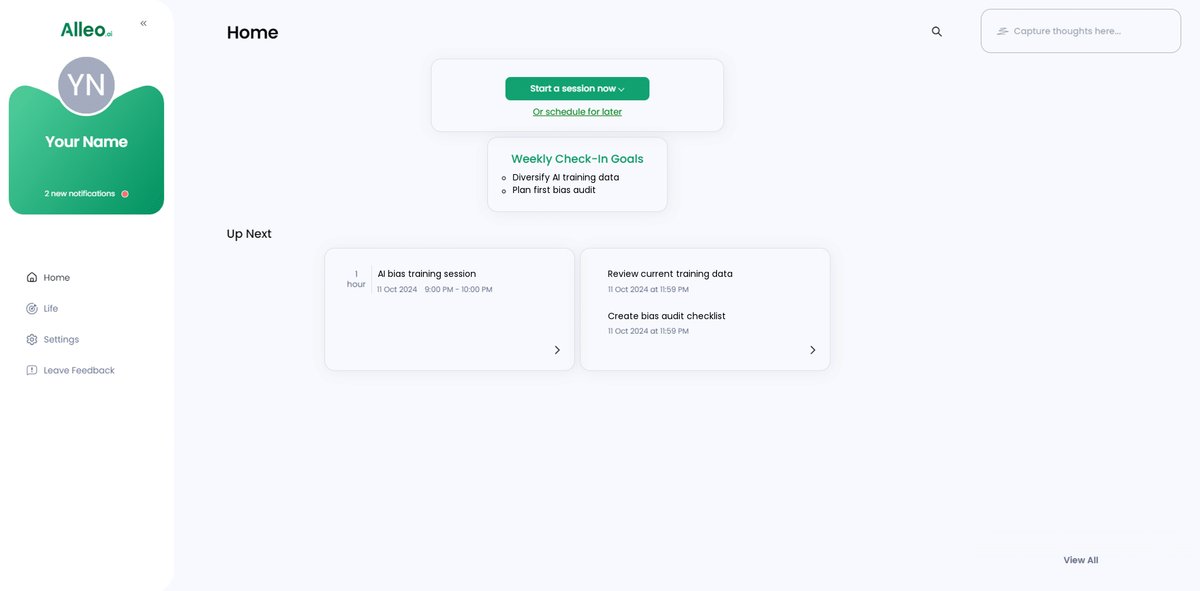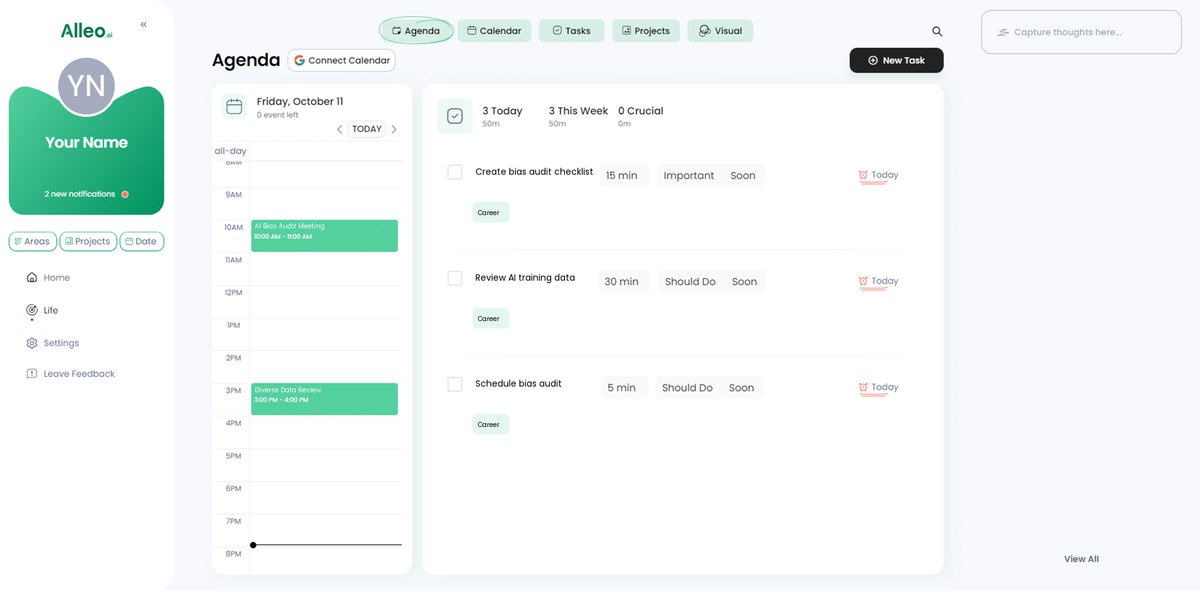How to Address AI Bias in Recruitment: A Revolutionary Guide for HR Professionals
Are you struggling with the ethical concerns and biases in your AI-powered recruitment tools? Addressing AI recruitment bias is crucial for fair and effective hiring practices.
As a life coach, I’ve helped many professionals navigate these challenges. In my experience, mitigating bias in applicant screening and implementing ethical AI practices for talent acquisition are essential for inclusive hiring processes.
In this post, you’ll discover actionable strategies to address AI recruitment bias. We’ll explore how to implement diverse AI training data, conduct regular algorithmic fairness audits, and combine AI insights with human judgment to ensure diversity and inclusion in AI-driven hiring.
Let’s dive into machine learning bias detection in HR and explore ways to enhance AI transparency in candidate selection.

The Ethical Challenges of AI in Recruitment
With the growing reliance on AI in recruitment, its potential benefits are undeniable. AI tools can streamline the hiring process, making it more efficient and data-driven. However, addressing AI recruitment bias is crucial for ethical AI practices in talent acquisition.
These tools also bring ethical concerns and algorithmic fairness challenges in recruitment.
In my experience, many clients initially struggle with recognizing AI biases in their hiring processes. These biases can lead to unfair hiring practices, perpetuating discrimination and hindering diversity and inclusion in AI-driven hiring.
For example, AI systems trained on biased data can favor certain demographic groups over others, highlighting the need for mitigating bias in applicant screening.
Moreover, companies like Amazon have faced issues with AI biases, which led them to discontinue their AI hiring tool. This highlights the significant impact of unchecked AI biases and the importance of machine learning bias detection in HR.
Addressing AI recruitment bias is crucial to ensure fair hiring practices.
Fair recruitment is vital for fostering diversity and inclusion in the workplace. By understanding and mitigating AI biases, you can create a more equitable hiring process and promote inclusive AI algorithms for hiring.

A Roadmap to Tackling AI Bias in Recruitment
Addressing AI recruitment bias requires a few key steps. Here are the main areas to focus on to make progress in mitigating bias in applicant screening:
- Implement diverse AI training data sets: Ensure your AI is trained on varied and representative data to promote algorithmic fairness in recruitment.
- Conduct regular bias audits on AI systems: Routinely check and correct biases in your AI tools, focusing on machine learning bias detection in HR.
- Combine AI insights with human judgment: Use AI to assist but not replace human decision-making, addressing unconscious bias in automated recruitment.
Let’s dive into these ethical AI practices for talent acquisition!
1: Implement diverse AI training data sets
Implementing diverse AI training data sets is crucial for addressing AI recruitment bias and reducing biases in AI recruitment tools.
Actionable Steps:
- Conduct a thorough review: Examine your current training data to identify gaps and biases. Measure this by creating a checklist of diverse characteristics to include in your dataset, focusing on mitigating bias in applicant screening.
- Partner with diverse organizations: Collaborate with diverse communities to source balanced data for inclusive AI algorithms for hiring. Track these partnerships and contributions to ensure representation.
- Update your training data regularly: Reflect changes in demographic trends by setting quarterly reviews to update and validate your training data, enhancing diversity and inclusion in AI-driven hiring.
Explanation: Ensuring your AI is trained on diverse data helps mitigate biases and promotes fair hiring practices. Regularly updating data and partnering with diverse organizations ensures your AI remains current and balanced, supporting ethical AI practices for talent acquisition.
According to Lamarr Institute, diverse data practices are essential in addressing AI biases effectively.
Key benefits of diverse AI training data include:
- Improved accuracy in candidate assessment through algorithmic fairness in recruitment
- Reduced risk of discrimination claims by addressing unconscious bias in automated recruitment
- Enhanced company reputation for inclusivity and AI ethics in hiring
Taking these steps will help align your AI systems with ethical standards and promote workplace diversity, while improving AI transparency in candidate selection and machine learning bias detection in HR.

2: Conduct regular bias audits on AI systems
Regular bias audits are essential to ensure fairness and transparency in AI-driven recruitment, addressing AI recruitment bias effectively.
Actionable Steps:
- Schedule routine bias audits: Use third-party tools or consultants to perform these audits bi-annually and document findings, focusing on algorithmic fairness in recruitment.
- Develop a standardized bias assessment protocol: Ensure consistency by creating and distributing a bias audit checklist to all relevant departments, promoting ethical AI practices for talent acquisition.
- Implement corrective actions: Based on audit results, track improvements by monitoring and reporting on bias reduction metrics, mitigating bias in applicant screening.
Explanation: Conducting regular bias audits helps identify and correct any unintended biases in your AI systems. This process aligns with industry best practices and ensures ethical AI implementation, promoting diversity and inclusion in AI-driven hiring.
For more details, refer to this source on the role of AI in employment processes. Regular audits promote transparency and build trust in your hiring practices, ensuring a fairer recruitment process and addressing AI recruitment bias.
This approach ensures your AI systems remain fair and unbiased, contributing to a more inclusive hiring strategy and improving machine learning bias detection in HR.

3: Combine AI insights with human judgment
Integrating AI insights with human judgment is vital for addressing AI recruitment bias and ensuring balanced and fair recruitment decisions.
Actionable Steps:
- Establish a cross-functional team: Set up monthly meetings for a team to discuss and validate AI-generated recommendations with human oversight, focusing on algorithmic fairness in recruitment.
- Train HR professionals: Conduct quarterly training sessions to help HR teams interpret and complement AI data with their expertise, emphasizing ethical AI practices for talent acquisition.
- Implement a feedback loop: Allow human reviewers to flag and correct AI biases, and track these instances for continuous improvement in mitigating bias in applicant screening.
Explanation: Combining AI insights with human judgment ensures that ethical standards are maintained in recruitment. This approach helps to mitigate biases that AI systems might introduce, while leveraging the efficiency of AI and promoting diversity and inclusion in AI-driven hiring.
According to the Department of Labor, human oversight is crucial for ensuring AI systems do not disadvantage individuals with protected characteristics. This balance fosters a fairer and more inclusive hiring process, addressing AI recruitment bias.
Key advantages of human-AI collaboration in recruitment:
- Balanced decision-making process
- Improved candidate experience
- Greater adaptability to unique situations
Partner with Alleo on Your AI Recruitment Journey
We’ve discussed the challenges of addressing AI recruitment bias and how solving them can benefit your hiring process. But did you know you can work directly with Alleo to make this journey towards ethical AI practices for talent acquisition easier and faster?
Set up your Alleo account and create a personalized plan tailored to your needs for mitigating bias in applicant screening. Alleo’s AI coach will guide you through implementing diverse training data, conducting bias audits, and combining AI insights with human judgment to ensure algorithmic fairness in recruitment.
The coach will follow up on your progress in addressing AI recruitment bias and handle any changes. You’ll stay accountable via text and push notifications, helping you maintain focus on diversity and inclusion in AI-driven hiring.
Ready to get started for free? Let me show you how to begin your journey towards inclusive AI algorithms for hiring!
Step 1: Log In or Create Your Account
To begin addressing AI biases in your recruitment process, log in to your Alleo account or create a new one to access our AI coach and personalized guidance.

Step 2: Choose “Building better habits and routines”
Click on “Building better habits and routines” to start addressing AI biases in your recruitment process. This goal will help you develop consistent practices for implementing diverse data, conducting audits, and balancing AI with human judgment.

Step 3: Select “Career” as Your Focus Area
Choose “Career” as your focus area in Alleo to tackle AI biases in recruitment, aligning perfectly with your goal of creating fair hiring practices and leveraging AI ethically in your professional environment.

Step 4: Starting a Coaching Session
Begin your AI-powered recruitment journey with an intake session to set up your personalized plan, allowing Alleo’s coach to tailor strategies for addressing AI biases in your hiring process.

Step 5: Viewing and Managing Goals After the Session
After your coaching session on addressing AI biases in recruitment, open the Alleo app to find your personalized goals displayed on the home page, allowing you to easily track and manage your progress towards implementing ethical AI practices.

Step 6: Adding events to your calendar or app
Use Alleo’s calendar and task features to schedule and track your progress in implementing AI bias mitigation strategies, such as conducting regular audits or updating training data sets, ensuring you stay on top of your ethical recruitment goals.

Wrapping Up: Embrace Ethical AI in Recruitment
As you can see, addressing AI recruitment bias is not just crucial but achievable. By implementing diverse AI training data, conducting regular bias audits, and combining AI insights with human judgment, you’re on the path to fairer hiring practices and mitigating bias in applicant screening.
I understand the challenges you face. Navigating algorithmic fairness in recruitment can be daunting, but with the right steps, you can create a more inclusive AI-driven hiring process.
Remember, you’re not alone in addressing AI recruitment bias. Alleo is here to support you every step of the way. Our AI coach will help you implement these strategies for ethical AI practices in talent acquisition and keep you on track.
Try Alleo for free today. You’ll see the difference it makes in achieving unbiased, ethical recruitment and enhancing diversity and inclusion in AI-driven hiring.